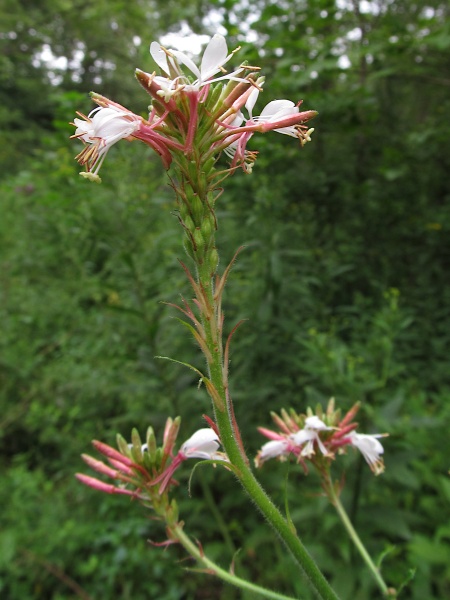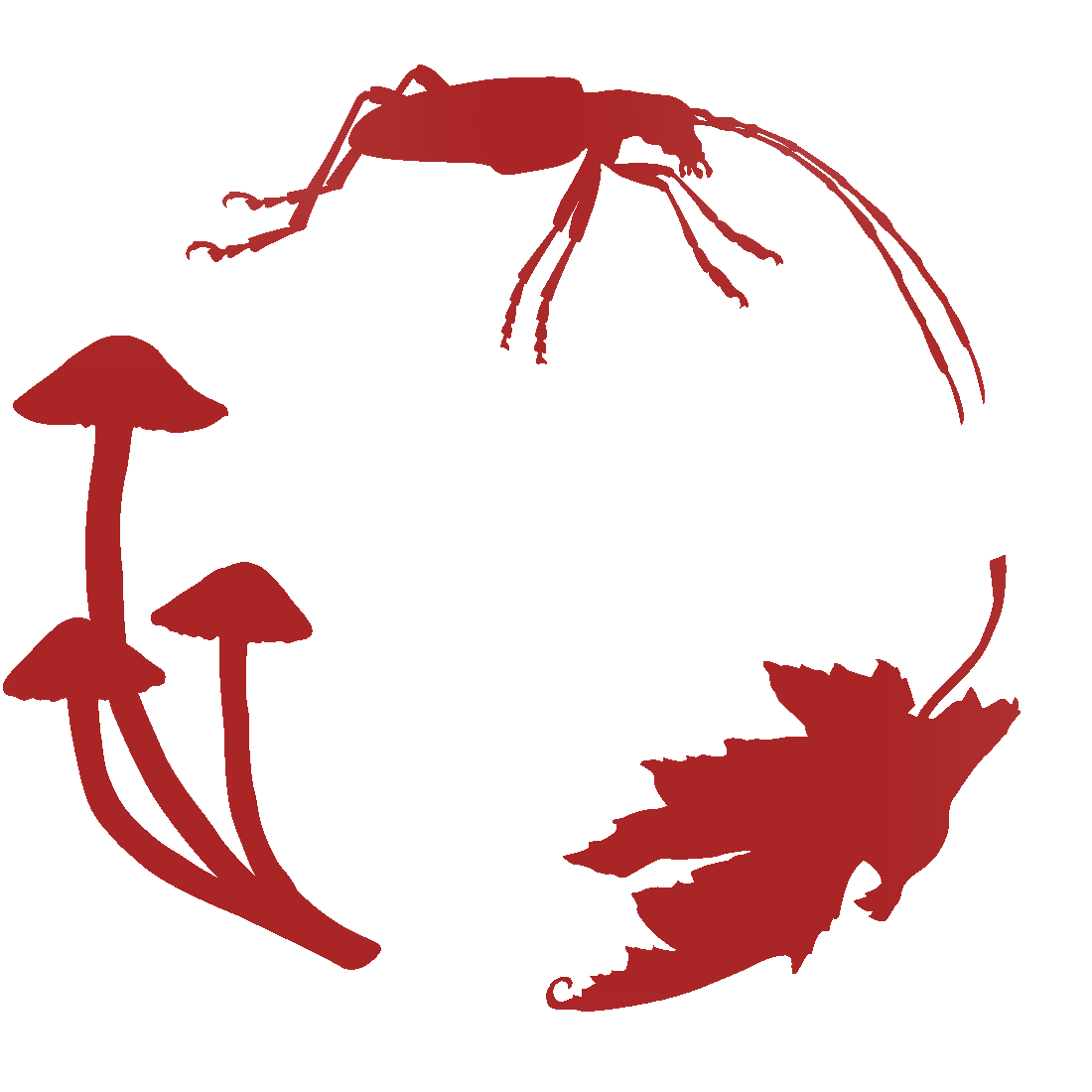
Source: Cbaile19
Oenothera gaura
Biennial Gaura
Gaura bisannuel
Synonyms
biennial bee-blossom
gaura bisannuelle
Seeds in stock
Available at table Mixed Sun, Dry
Available at table Mixed Sun, Dry
We currently accept seeds for this plant
Bloom Colour: Pink
Bloom Period: Jul - Sep
Max Height: 6.0 feet
Max Width: 1.5 feet
Light Condition:
 More than 6 hours of direct sun a day
More than 6 hours of direct sun a day
 More than 2 or 3 hours but less than 6 hours of direct sun a day
Soil conditions:
More than 2 or 3 hours but less than 6 hours of direct sun a day
Soil conditions:
 Tolerates dry soil condition
Tolerates dry soil condition
 More than 6 hours of direct sun a day
More than 6 hours of direct sun a day
 More than 2 or 3 hours but less than 6 hours of direct sun a day
More than 2 or 3 hours but less than 6 hours of direct sun a day
 Tolerates dry soil condition
Tolerates dry soil condition
Lifespan:
Biennial
plants that will take two years to bloom, and then will die
Gardener Experience:
 Suitable for beginner gardeners
Suitable for beginner gardeners
 Does not spread uncontrollably
Does not spread uncontrollably
 Easy to germinate
Easy to germinate
 Self-seeding
Self-seeding
 Suitable for beginner gardeners
Suitable for beginner gardeners
 Does not spread uncontrollably
Does not spread uncontrollably
 Easy to germinate
Easy to germinate
 Self-seeding
Self-seeding
Landscape Uses:
 Suitable for rock gardens
Suitable for rock gardens
 Suitable for rock gardens
Suitable for rock gardens
Ecological Benefits:
No ecological benefits information available.
Tolerates:
 Deer resistant
Deer resistant
 Rabbit resistant
Rabbit resistant
 Tolerates foot traffic around the plant
Tolerates foot traffic around the plant
 Tolerates limestone conditions
Tolerates limestone conditions
 Tolerates juglone conditions
Tolerates juglone conditions
 Deer resistant
Deer resistant
 Rabbit resistant
Rabbit resistant
 Tolerates foot traffic around the plant
Tolerates foot traffic around the plant
 Tolerates limestone conditions
Tolerates limestone conditions
 Tolerates juglone conditions
Tolerates juglone conditions
Special Features and Considerations:
 This plant is endangered
This plant is endangered
 This plant is endangered
This plant is endangered
Plant Location
Distribution according to VASCAN

Ephemeral
Native
Introduced
Excluded
Extirpated
Doubtful
Absent
Thrives in Ecozones
- Atlantic Maritime
- Prairies
- Boreal Shield
- Mixed Wood Plains
Ecological Benefits
Butterflies Supported by Oenothera gaura
- Eudryas unio (Pearly Wood Nymph)
- Hyles lineata (White lined Sphinx)
- Mompha eloisella (Red streaked Mompha)
- Schinia florida (Primrose)
Specialized Bees Supported by Oenothera gaura
- Lasioglossum oenotherae
Plants that grow in similar conditions, that bloom at the same time.
Complementary Plants
- Agastache scrophulariifolia
Purple Giant Hyssop
Agastache à feuilles de scrofulaire - Amorpha canescens
Leadplant
Faux-indigo blanchissant - Anemone cylindrica
Long-headed Anemone
Anémone cylindrique - Elymus canadensis
Canada Wild Rye
Élyme du Canada - Rudbeckia laciniata
Cut-leaved Coneflower
Rudbeckie laciniée
Substitute For Non-Native Plants
- Oenothera (Non-Native Primrose)
- Oenothera biennis (Evening Primrose Cultivars)
- Oenothera fructicosa (Sundrops Cultivars)
Sowing Information
Download Seed Envelope Labels (PDF)
- Sowing depth: Surface sow
- Sow anytime
- Stratification duration: 0 days
- Self-seeding
- Notes: Can be sown in early spring in cool soil.
Harvesting and Seed Sharing
- Harvest start month: September
- Harvesting indicator:
- Pods are brown, seeds are dark, and crisp, and little stem connecting the pod to the main stem is brown (not green)
- Harvesting:
- Cut stem (including pods), let air dry in paper bag, then shake seeds off after a few days
- Seed viability test:
- No test needed before donating
- Packaging measure: 1 rounded 1/8 teaspoon
- Seed storage:
- Air dry in paper bag or open container, for a few days until crisp
- Shake seeds to move them once in a while to prevent molding
- Cultivar: No, you can donate without knowing the source as there are only straight species
- Remove non-seed material
- No harvesting video available at this time.
Toxicity Notes
Inadequate information on toxicity found.


 Canadensis
Canadensis
